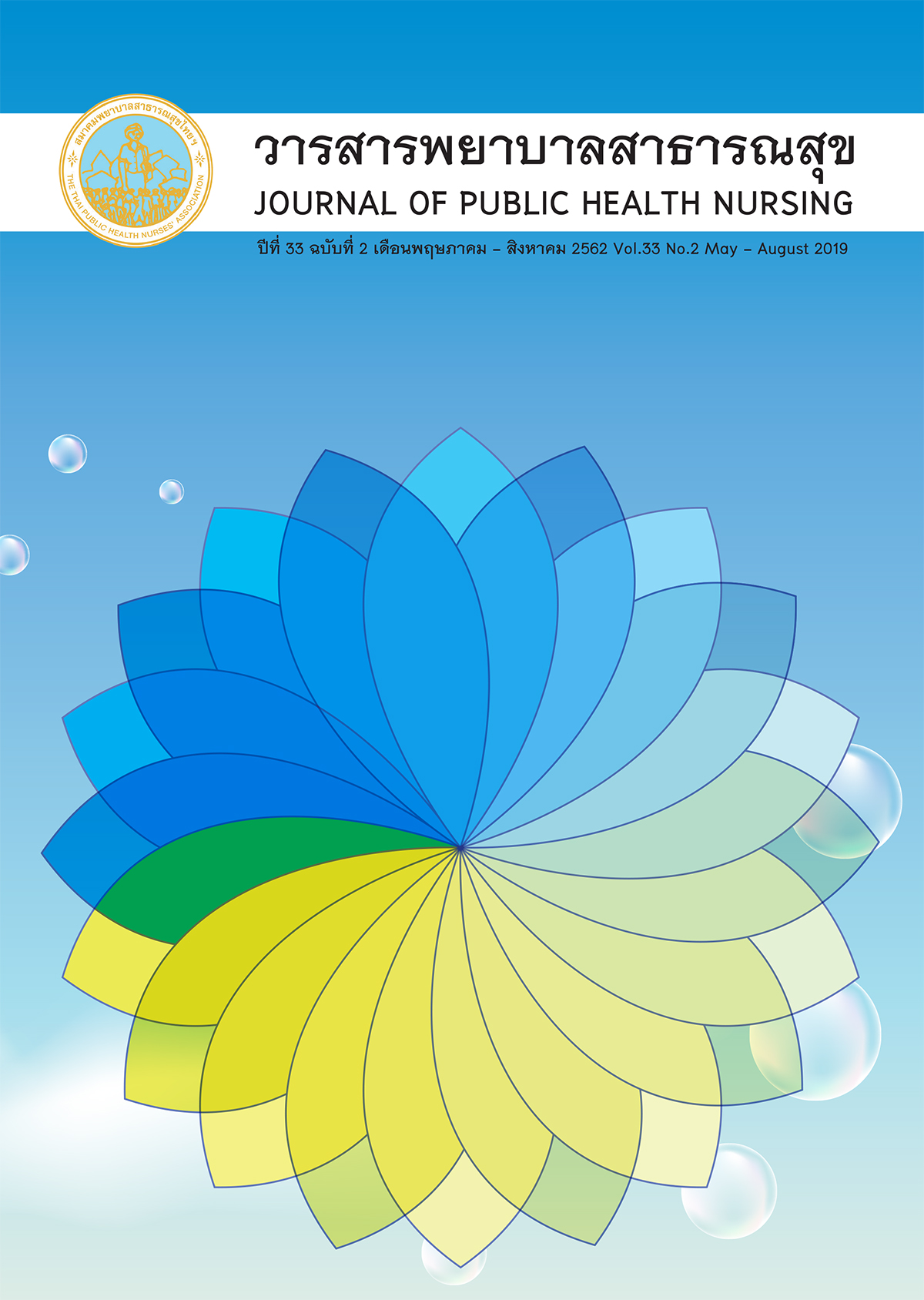Developing Nursing Students’ Soft Skills: Learned from the Collaborative Network for Educational Quality Assurance
Keywords:
Learning, Soft Skills, Student NurseAbstract
The long-term Thai Higher Education plan (B.E.2560-2574) for student development is focused on soft skills. Soft skills are a part of People Management Competency which involves many skills such as social, communication, problem solving, as well as attitudes and personal attributes. The value for professional nursing from soft skills development includes emotional quotient or virtues. Those virtues need a period of time to develop as well as to assess.
Nursing educators propose two expected characteristic of graduates’ soft skills; good human relationships, leadership and professional faithfulness, and trust in nursing and the self-value of promoting good to people. Learning is based on humanizing theory, belief in learning through experiences of realization, skills and attitudes concurrently. The focus of learning is the students’ sensations, values, ideas, and fascination.
This article reflects principles learned from out-of-class experiences of 80 nursing students from four private institutes serving the teenage health promotion Collaborative Network for Educational Quality Assurance project. Their reflection for self-development suggests the need to apply knowledge to the real situation for problem solving, have improved communication, relationships, and team work, realize community problems and be proud of reducing social problems through trust in nursing values. The challenge in developing students’ soft skills is to recognize the national need for future professional competency. This should originate from two viewpoints, those of executive policy and of faculty in designing the platforms of out- of-class learning.
References
Yamnun S. The policy setting conference of student development. A presentation file of 15 years higher education framework version 3 B.E. 2560-2574. Office of the Higher Education Commission; 2016.
Oknation.nationtv.tv. Future graduate skills. Soft Skill: The University did not taught [Internet]. 2009 [cited 2017 Oct 1]. Available from http://www.oknation.nationtv.tv/blog/hrd/2009/12/09/entry-1.
Jindarat Pho. Soft Skill [Internet]. [cited 2016 Oct 15]. Available from http://www.royin.go.th/knowledges/SoftSkill.
Investopedia. Soft Skills [Internet]. [cited 2016 Oct 15]. Available from http://www.investopedia.com/terms/s/soft-skills.asp.
Rajamangala University of Technology Thanyaburi. Soft skills [Internet]. [cited 2017 Oct 15]. Available from http://www.handson.rmutt.ac.th/?p=1429.
Wijarn Panich. 21st century skills [Internet]. [cited2017 Oct 19]. Available from http://www.vicharkarn.com/article/60454.
Lathaphiphat D. Demanded Skills [Internet]. World Economic Forum.10. [cited 2018 May15]. Available from https://www.etoyotaclub.net/site/Webboard/aft/43770.
Office of the Higher Education Commission. Announcement of Bachelor Degree Qualifications of Nursing Science 2009. Ministry of Education. Bangkok; 2009.
Thailand Nursing and Midwifery Council. Main competencies of bachelor degree graduates in nursing [Internet]. [cited 2017 Oct 15]. Available from http://www.tnmc.or.th/images/userfiles/files/1project(1).pdf.
Media thailand blog. Learning theory for adults [Internet]. 2012 [cited 2017 Oct 29]. Available from http://media-thailand.blogspot.com/2012/05/blogpost_1880.html.
Office of the Higher Education Commission. Internal quality assurance guide for education. Office of Educational Quality Assurance, Ministry of Education. Bangkok; 2014.
Eldaba A. An Innovative Model to Design an Academic and Social Development for International College Students. College student Journal volume 2016; 50(2): 171-7.
Downloads
Published
How to Cite
Issue
Section
License
บทความที่ตีพิมพ์และแผนภูมิรูปภาพถือเป็นลิขสิทธิ์ของวารสารพยาบาลสาธารณสุข (Thai Public Health Nurses Association)







